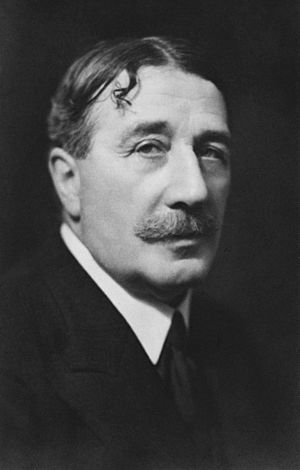Émile Chartier facts for kids
Quick facts for kids
Émile Chartier
|
|
|---|---|

Alain in 1931
|
|
| Born | 3 March 1868 Mortagne-au-Perche, Orne, France
|
| Died | 2 June 1951 (aged 83) Le Vésinet, France
|
| Other names | Alain |
| Education | École Normale Supérieure (B.A., 1892) |
| Era | 20th-century philosophy |
| Region | Western philosophy |
| School | Continental philosophy |
| Academic advisors | Jules Lagneau |
|
Main interests
|
Political philosophy |
|
Influences
|
|
|
Influenced
|
|
Émile-Auguste Chartier (born March 3, 1868 – died June 2, 1951) was a French philosopher, journalist, and a person who believed in peace. He was better known by his pen name, Alain. He chose this name to honor a poet from the 1400s named Alain Chartier.
Contents
Early Life and Education
Alain was born in 1868 in a town called Mortagne-au-Perche, France. He started studying at Lycée d'Alençon in 1881 and stayed there for five years. Years later, in 1956, this school was renamed Lycée Alain to remember its most famous student.
In 1892, Alain finished his studies at the École Normale Supérieure. He earned a special degree in philosophy.
Alain's Career as a Teacher
After finishing his studies, Alain taught in many different schools. He taught in places like Pontivy, Lorient, and Rouen. Later, he taught in Paris at schools such as Lycée Condorcet and Lycée Michelet.
From 1903, he started writing for different newspapers and magazines. He always used his pen name, Alain, for these writings. His students and other teachers usually called him "Alain."
In 1909, he became a teacher at the Lycée Henri-IV in Paris. He had a big impact on his students. Some of his famous students included Raymond Aron, Simone Weil, and André Maurois. Many people, like Professor John Hellman, believed Alain was the best teacher of his time.
Books by Alain
Alain spoke out against World War I before it even started. But when the war began, he joined the army as a soldier. He refused to become an officer and served as a regular soldier throughout the entire war.
While he was fighting in the trenches, he wrote several books:
- Mars, ou la guerre jugée (1921) – This book was about the truth of war.
- Quatre-vingt-un chapitres sur l'esprit et les passions (1917) – This book explored thoughts and feelings.
- Le système des beaux-arts (1920) – This book discussed the system of fine arts.
After the war, he wrote many other books. Some of these include:
- Propos sur le bonheur (1925) – About happiness.
- Le citoyen contre les pouvoirs (1926) – About citizens standing up to power.
- Propos sur l'éducation (1932) – About education.
- Les Dieux (1934) – About gods.
- Histoire de mes pensées (1936) – About the history of his thoughts.
Alain's Ideas and Views
Alain was a very important thinker for a political idea called radicalism in France. He believed strongly in the importance of each person, or individualism. He wanted to protect citizens from the power of the government.
He warned people about all kinds of power, including military power, religious power, and economic power. To fight against these, he praised the lives of small farmers, small shopkeepers, and people in small towns. He thought country life was ideal and saw big cities like Paris as dangerous places where power could grow too strong.
During World War II, some of Alain's private writings showed different views. In 1940, he hoped that the Free French forces would be defeated. He also described Adolf Hitler as having a "modern mind" and being an "invincible spirit." He even said Hitler spoke with "extraordinary eloquence and remarkable sincerity" about the "Jewish question."
However, Alain also struggled with his own feelings. In his private diary, he wrote that he wished he could get rid of his antisemitism (prejudice against Jewish people), but he found it hard. He called it a "sad passion," meaning a feeling that showed weakness.
Later, in 1946, in a new introduction to his book about the philosopher Spinoza, Alain wrote about overcoming hatred. He said that if people understood Spinoza's ideas, they could form a "Spinoza party," which he also called the "Jewish party." He believed that through this understanding, "without fight, nazism, fascism and all other kinds of despotism will be defeated." He thought that evil would become powerless because it is "nothing" on its own.
Alain also had mixed feelings about Hitler. In some of his writings, he called Hitler a "great patriot." But he quickly added that he felt sorry for people who had such leaders, and also for their neighbors. This shows his complex and sometimes changing thoughts.
Death
Émile Chartier, known as Alain, passed away in 1951. He is buried in the famous Père Lachaise Cemetery in Paris.
See also
 In Spanish: Alain para niños
In Spanish: Alain para niños
- List of peace activists
 | William Lucy |
 | Charles Hayes |
 | Cleveland Robinson |

